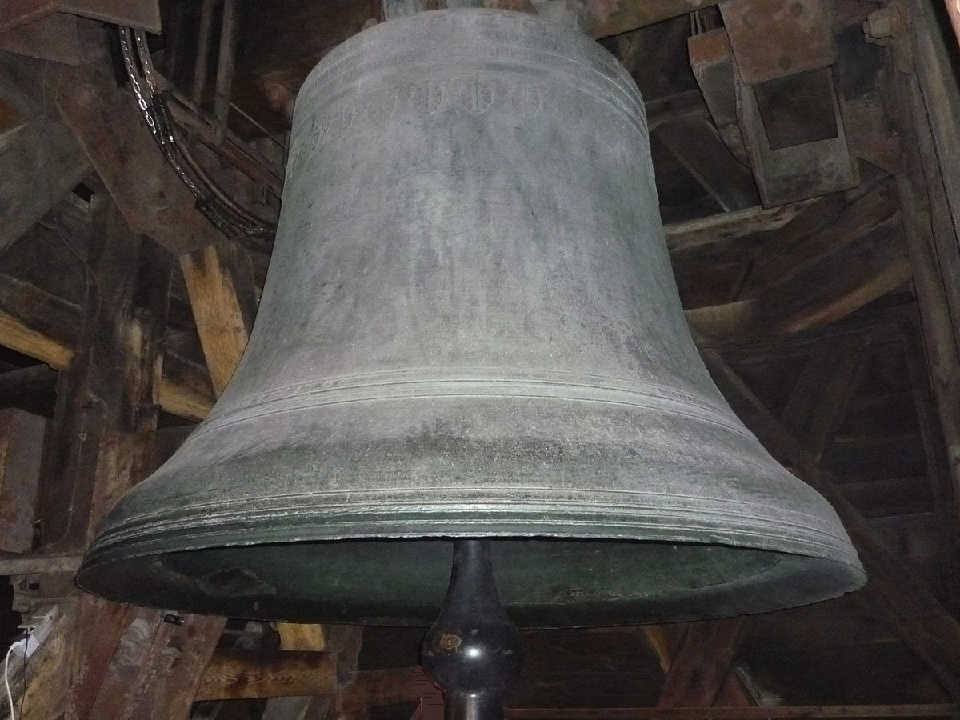
Bahá’u’lláh’s Second Letter to Napoleon III: A New Way of Life

Bahá’u’lláh’s second letter announcing to Napoleon III his mission, is multilayered. It was written not long after Bahá’u’lláh arrived in the prison city of Akka. As we read it, it is easy to forget that these are the words of a persecuted prisoner of an absolute monarch.
He Who is the Unconstrained is come, in the clouds of light, that He may quicken the world with the breezes of His name, the Most Merciful, and unite its peoples, and gather all men around this Table which hath been sent down from heaven.[1]
The tragedy was that the Emperor could not hear and his fate hung by a thread. He had one remaining chance to take another path. He did not.
For what thou hast done, thy kingdom shall be thrown into confusion, and thine empire shall pass from thine hands, as a punishment for that which thou hast wrought. Then wilt thou know how thou hast plainly erred.[2]
At the Battle of Sedan his destined fall came to fruition. But the rise and fall of individual kings is of little moment, so the question comes to mind: Why does Bahá’u’lláh take the time to inscribe their coming fate? We still read Bahá’u’lláh’s words, and they are meant for us, as much as for Napoleon III – though even when speaking to multiple audiences the words can be intensely personal.
Among the opening words of the message we find:
O King of Paris! Tell the priests to ring the bells no longer … The Most Mighty Bell hath appeared … and the fingers of the Will of Thy Lord, the Most Exalted, the Most High, toll it out in the heaven of Immortality in His name, the All-Glorious.
The words are universal. Yet at the same time personal to an Emperor whose rise to power was connected with his promotion of religion following a period of secularisation. And some of the message’s verses deal specifically with the Emperor’s responsibilities as a ruler:
Know of a truth that your subjects are God’s trust amongst you. Watch ye, therefore, over them as ye watch over your own selves. Beware that ye allow not wolves to become the shepherds of the fold, or pride and conceit to deter you from turning unto the poor and the desolate.[3]
Yet as Bahá’u’lláh unfolds his message, we realise that already, though condemned to perpetual imprisonment, he is laying the foundations of a new way of life. The reform of religious institutions is seen in the words he addresses to monks:
O concourse of monks! Seclude not yourselves in your churches and cloisters. Come ye out of them by My leave, and busy, then, yourselves with what will profit you and others. … Seclude yourselves in the stronghold of My love. This, truly, is the seclusion that befitteth you, could ye but know it. He that secludeth himself in his house is indeed as one dead. It behoveth man to show forth that which will benefit mankind … Enter ye into wedlock, that after you another may arise in your stead. [4]
As we read these words, we realise that they inculcate a new way of life: one that is both spiritual and concerned with material well-being.
The elements of this new way of life emerge with increasing clarity as sentence follows sentence:
Should your words, O people, be at variance with your deeds, what then shall distinguish you from those who profess their faith in the Lord, their God, and yet, when He came down to them overshadowed with clouds, rejected Him and waxed proud before God, the Incomparable, the Omniscient?[5]
* * *
Shed not the blood of anyone, O people, neither judge ye anyone unjustly … They that commit disorders in the land after it hath been well ordered, these indeed have outstepped the bounds that have been set in the Book.[6]
* * *
God hath prescribed unto everyone the duty of teaching His Cause. Whoever ariseth to discharge this duty, must needs, ere he proclaimeth His Message, adorn himself with the ornament of an upright and praiseworthy character, so that his words may attract the hearts of such as are receptive to his call.[7]
* * *
They who exhort others unto justice, while themselves committing iniquity, stand accused of falsehood … Commit not, O people, that which dishonoureth your name and the fair name of the Cause of God amongst men. Beware lest ye approach that which your minds abhor. Fear God and follow not in the footsteps of them that are gone astray.[8]
* * *
Deal not treacherously with the substance of your neighbour. Be ye trustworthy on earth, and withhold not from the poor the things given unto you by God through His grace.[9]
* * *
We have ordained that our Cause be taught through the power of utterance. Beware lest ye dispute idly with anyone.[10]
* * *
If ye become aware of a sin committed by another, conceal it, that God may conceal your own sin.[11]
* * *
Such ethical exhortations are accompanied by the outlines of a new community life. New religious festivals are set out. A nineteen day period of fasting is ordained in the most temperate time of the year. Asceticism is discouraged. Such elements are later to be more fully elaborated in Bahá’u’lláh’s book of laws, the Most Holy Book (the Kitab-i-Aqdas).
Bahá’u’lláh’s closing words draw us to a meditation on the illusion of the material reality.
Meditate on the world and the state of its people. He, for Whose sake the world was called into being, hath been imprisoned in the most desolate of cities, by reason of that which the hands of the wayward have wrought. … Exultest thou over the treasures thou dost possess, knowing they shall perish? Rejoicest thou in that thou rulest a span of earth, when the whole world, in the estimation of the people of Bahá, is worth as much as the black in the eye of a dead ant? Abandon it unto such as have set their affections upon it, and turn thou unto Him Who is the Desire of the world. Whither are gone the proud and their palaces? Gaze thou into their tombs, that thou mayest profit by this example, inasmuch as We made it a lesson unto every beholder. …
…Consider the pettiness of men’s minds. They seek with utmost exertion that which profiteth them not, and yet wert thou to ask of them: “Is there any advantage in that which ye desire?”, thou wouldst find them sorely perplexed.[12]
(This article is the 141st in a series of what I hope will be 200 articles in 200 days for the 200th anniversary of the birth of Bahá’u’lláh. The anniversary is being celebrated around the world on 21 and 22 October 2017, The articles are simply my personal reflections on Bahá’u’lláh’s life and work. Any errors or inadequacies in these articles are solely my responsibility.)
Image Credits: The greatest bell of Notre Dame Cathedral. Creative commons image, Wikipedia.
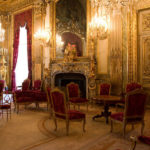
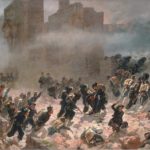
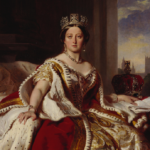
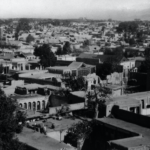



One Comment
Eileen Hanks
This is a great website